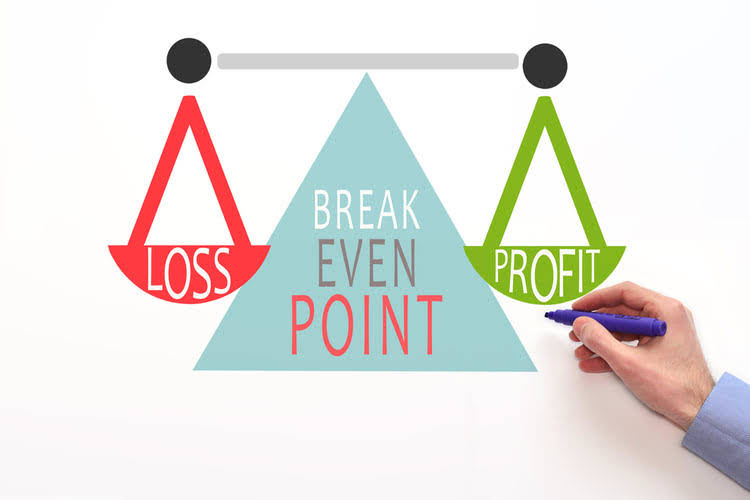
Our ranking methodologies use data from the National Center for Education Statistics, education providers, and reputable educational and professional organizations. An advisory board of educators and other subject matter experts reviews and verifies our content to bring you trustworthy, up-to-date information. A bookkeeper is tasked with recording the company’s financial transactions in a clean and consistent way. They maintain a company or department’s general ledger, tracking money in versus money out. It also offers flexibility (there are so many specialties!), opportunity (there’s demand!), and compensation (it pays!).

Budget Analyst
Intuit offers a course on Bookkeeping Basics on Coursera, which you can use to help prepare for this role. Here are some of the most common frequently asked questions about accounting. Do you get satisfaction from following guidelines, standards, or rules to a T? However, many bookkeepers only possess a high-school diploma and excellent math skills.
- An avid content creator, Logan publishes weekly videos to his YouTube channel to inform and educate everyday Americans who have found themselves in tax trouble on how they can get a fresh start.
- You’ll have to check figures and postings to analyze and compare with real-world documents, searching for transcription errors and larger discrepancies that a company’s executives must address.
- Most accounting jobs require a minimum of a bachelor’s degree in accounting, finance, business, or a related field.
- In fact, renowned billionaire investor Warren Buffet once called accounting the language of business.
- The most common certification for tax accountants is the Certified Public Accountant (CPA) designation.
- A bachelor’s degree, preferably in business, is often required for entry-level positions.
- They signal to future employers that you have acquired skills, achieved a level of competence, and had experiences and responsibilities in your field.
Forensic Accountant
- According to Glassdoor, the average salary of an accounting intern in Canada is $42,257 a year [1].
- Modern accounting now relies heavily on technology, which helps professionals work more efficiently.
- With experience in sales, it is possible to become a sales manager with a high school diploma.
- Rather than auditing an organization to create clarity and provide recommendations, forensic accountants investigate whether or not an individual or organization has committed a crime.
Some companies have a chief financial officer, while others have a vice president of accounting. Some employ a team of staff accountants, while others rely on outside help to tackle most of their financial needs. Still, we can make some basic assumptions about where a person falls in the pecking order based on their job title.
Hard skills for accountants
- But there’s a lot more to the job than that—and it’s been evolving rapidly in recent years.
- If you already work in accounting, pay close attention to the job titles and descriptions.
- They use their accounting, finance, and economics skills to provide insights into capital, margin and constraint analysis, inventory levels, and costs.
- Other duties of an Accounts Receivable Specialist include account reconciliation and cash receipt creation.
- Becoming a controller or comptroller requires deep accounting knowledge, so the person in this role usually has a lengthy job history of prior accounting roles.
- Below are the most popular entry-level accounting job titles ranked by both candidate and employer searches on Google (source; ahrefs and Google Keyword Planner).
These four branches include corporate, public, government, and forensic accounting. An undergraduate degree is most often required for any accounting career, while previous master’s work, especially in the accounting field, is often strongly preferred. A Staff Accountant works directly with the Controller/Comptroller in an organization to prepare and analyze organizational budgets. A Staff Accountant is responsible for maintaining financial records, general ledgers, and reports.
While many of a bookkeeper’s duties mirror those of an accountant, bookkeeping is more of an administrative role concerned primarily with recording transactions. An accountant, on the other hand, takes those recordings one step further and provides subjective insights drawn from them. Like a CFO, the VP of finance has a heavy hand in the company’s financial activities. Generally speaking, a CFO takes a broader, deeply strategic approach to steering the financial ship. At the same time, a VP of finance deals more closely with the company’s day-to-day financial operations.
Businesses are starting to prioritize sustainability and corporate responsibility, which is creating a demand for accountants with experience in environmental accounting and sustainability reporting. These positions assist businesses in managing their environmental effect and analyzing the costs of environmental strategies. An accounting degree can also be an asset for those with entrepreneurial aspirations. An accounting degree prepares you to speak and understand that language, whether you pursue accountancy, auditing, sales management, advising or one of the many other accounting career paths.
Accounts payable specialist

For instance, modifications to financial reporting requirements and tax regulations frequently call for particular expertise, which raises the need for tax accountants and compliance officers. Accounting careers that require a bachelor’s degree at a minimum can be worth it. Whereas many accountants work in-house, auditors are typically external parties that come in to check the work of the company’s financial staff.
An accountant may work internally for a single company, focusing only on that organization’s financials. Or, they might work for an accounting firm that handles services for many different organizations. Finally, an accountant may be self-employed, running their own practice and taking on as many clients as they can comfortably manage. You may know accountants as the people who handle your taxes—and ask if you can deduct your home office or claim your dog as a dependent—but they’re much more than that.
- Review current listings for jobs in accounting in your chosen field or industry and begin applying for jobs that align with your career goals.
- The goal is to provide accurate and timely information that will help these individuals make informed decisions about the company.
- All organizations are different when it comes to how they structure their financial departments.
- The Certified Public Bookkeeper certification offered by the National Association of Certified Public Bookkeepers is a bonus to your résumé.
- These crimes may include embezzlement, money laundering, tax evasion or other means of fraud.
- Management accounting is a challenging and rewarding career that can offer opportunities for advancement and high earning potential.
At the highest level of companies, job titles typically include controller, comptroller, treasurer, finance manager and chief financial officer (CFO). The CFO is usually the highest-ranking financial accounting jobs titles person at a business, working with other upper-level finance executives. You make entries in a company’s general ledger, which is the record for transactions, debits, and credits throughout the year.
Certification requirements
The controller manages the full scope of the company’s accounting records, dictating how they’re kept and where they’re stored. They assemble the organization’s budget, ensuring line items align with the year’s revenue projections. To become a CFO, you’ll need to have a background that gives you a firm grasp on various areas https://www.bookstime.com/ of finance, from budgeting to compliance. Most CFOs have held a number of the other roles we’ll discuss in this article, oftentimes jumping from company to company as they climb the ladder. Ultimately accountants build trust with consumers and investors, forming what Heller calls the “bedrock of trust” in the economy.
